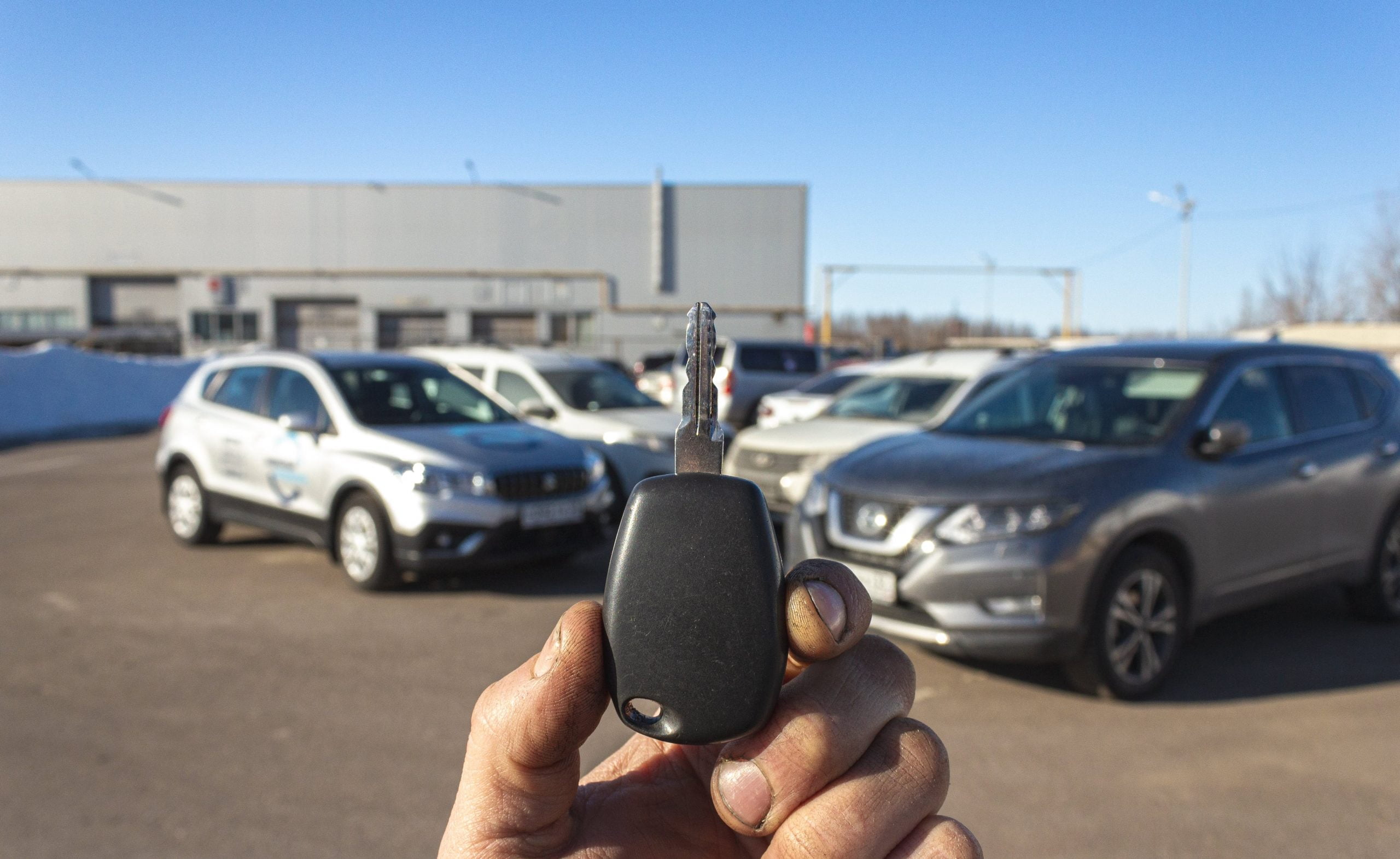Comparing car insurance quotes appears simple enough, but representations can be deceiving. Obtaining a few quotes and comparing the insurance premiums for each policy is just the beginning. When you compare auto insurance rates, make sure you’re comparing plans that provide the same amount of coverage. After all, you don’t want to select the cheapest car insurance quote only to discover that it doesn’t offer the protection you need. While reviewing car insurance quotes, you should also consider any available discounts to ensure you’re comparing the best prices from each company. Keep reading to find out what factors affect car insurance rates, how to compare quotes, and how to save money.
Compare the Best Car Insurance Quotes
We found that Farm Bureau, State Farm, and USAA are the three leading insurance companies that offer the cheapest rates on average. Nonetheless, your actual costs will vary depending on your location, driving history, and other factors.
| Companies | Insurance Rates |
| USAA | $437 |
| Farm Bureau | $472 |
| State Farm | $532 |
| GEICO | $667 |
| National average | $875 |
| Progressive | $884 |
| Allstate | $916 |
| Nationwide | $916 |
| Farmers | $959 |
| Travelers | $1,035 |
Factors Affecting the Car Insurance Rates
The primary factor affecting auto insurance rates is the amount and type of coverage you select. But beyond the elected policy, many elements will affect your premiums, including your location, age, vehicle type, traffic violation and accident history, and credit score.
Compare Auto Insurance Prices by State
| State/ Region | Cheapest major insurer | Average monthly premium | Average annual premium |
| Alabama | State Farm | $46 | $554 |
| Arizona | State Farm | $54 | $653 |
| Alaska | State Farm | $30 | $359 |
| Arkansas | Farm Bureau | $ 30 | $361 |
| Connecticut | State Farm | $52 | $629 |
| Colorado | State Farm | $38 | $452 |
| California | GEICO | $33 | $390 |
| Delaware | GEICO | $23 | $274 |
| Florida | Farm Bureau | $47 | $562 |
| Georgia | GEICO | $23 | $274 |
| Hawaii | Auto-Owners | $20 | $236 |
| Illinois | Auto-Owners | $25 | $302 |
| Idaho | State Farm | $31 | $377 |
| Indiana | State Farm | $17 | $198 |
| Iowa | State Farm | $30 | $356 |
| Kentucky | Farm Bureau | $46 | $549 |
| Kansas | Farm Bureau | $42 | $503 |
| Louisiana | State Farm | $30 | $361 |
| Maine | State Farm | $67 | $809 |
| Massachusetts | Auto-Owners | $107 | $1,282 |
| Maryland | Hanover | $32 | $387 |
| Minnesota | State Farm | $39 | $468$ |
| Michigan | State Farm | $38 | $460 |
| Mississippi | State Farm | $35 | $419 |
| Montana | Farm Bureau | $28 | $336 |
| Missouri | State Farm | $22 | $260 |
| Nebraska | State Farm | $53 | $640 |
| New Hampshire | State Farm | $36 | $427 |
| Nevada | State Farm | $28 | $332 |
| New Jersey | State Farm | $30 | $360 |
| New York | Erie | $29 | $344 |
| New Mexico | State Farm | $61 | $732 |
| North Dakota | State Farm | $25 | $299 |
| North Carolina | State Farm | $26 | $313 |
| Ohio | State Farm | $29 | $351 |
| Oregon | Farm Bureau | $28 | $336 |
| Oklahoma | State Farm | $42 | $503 |
| Pennsylvania | GEICO | $83 | $997 |
| Rhode Island | GEICO | $38 | $460 |
| South Dakota | State Farm | $26 | $314 |
| South Carolina | Auto-Owners | $18 | $218 |
| Texas | Farm Bureau | $48 | $574 |
| Tennessee | State Farm | $38 | $450 |
| Utah | State Farm | $24 | $282 |
| Virginia | State Farm | $34 | $413 |
| Vermont | GEICO | $27 | $327 |
| Washington, DC | State Farm | $62 | $738 |
| Washington | Erie | $50 | $594 |
| West Virginia | GEICO | $32 | $382 |
| Wyoming | GEICO | $19 | $222 |
| Wisconsin | State Farm | $27 | $325 |
Insurance is governed at the national level, and comparing auto insurance rates by state can indicate how significantly state regulations affect the cost of auto insurance where you live. Also, we summarized the average cost of auto insurance in all the 50 states and Washington, D.C., and found the best value insurer in each.
Compare Car Insurance Quotes Based on Accident History
On average, insurance premiums are increased by 47 percent following an at-fault accident. Nevertheless, not all insurers expand their rates by the same amount.
Drivers with GEICO coverage experience a significant increase in prices after an accident, whereas State Farm insurers typically charge lower penalties.

Rates are based on the state’s minimum coverage for a 30-year-old male with a good driving record.
State-Specific Rate Increase Following an Accident
Your location also influences your car insurance rate after an accident. Drivers in Pennsylvania are fortunate as their rates expand by only 17 percent on average after an accident. However, insurance premiums in California increase twofold after an accident — the highest increase in the country.
| State | Clean record | After accident | Difference |
| Louisiana | $1,051 | $1,646 | 57% |
| Maine | $1,922 | $2,757 | 43% |
| Maryland | $2,271 | $3,390 | 49% |
| Massachusetts | $7,161 | $11,446 | 60% |
| Michigan | $1,779 | $2,814 | 58% |
| Minnesota | $1,795 | $2,713 | 51% |
| Mississippi | $1,859 | $2,658 | 43% |
| Missouri | $1,792 | $2,567 | 43% |
| Montana | $1,739 | $2,416 | 39% |
| Nebraska | $2,636 | $4,085 | 55% |
| Nevada | $1,455 | $2,197 | 51% |
| New Hampshire | $1,828 | $2,876 | 57% |
| New Jersey | $1,800 | $2,616 | 45% |
| New Mexico | $2,111 | $2,910 | 38% |
| New York | $1,291 | $1,971 | 53% |
| North Carolina | $1,715 | $2,330 | 36% |
| North Dakota | $1,378 | $1,956 | 42% |
| Ohio | $1,885 | $2,761 | 46% |
| Oklahoma | $1,847 | $2,929 | 59% |
| Oregon | $1,586 | $2,334 | 47% |
| Pennsylvania | $2,743 | $3,221 | 17% |
| Rhode Island | $1,686 | $2,430 | 44% |
| South Carolina | $1,999 | $2,746 | 37% |
| South Dakota | $1,534 | $2,144 | 40% |
| Tennessee | $1,872 | $2,720 | 45% |
| Texas | $1,710 | $2,635 | 54% |
| Utah | $1,361 | $2,013 | 48% |
| Vermont | $1,350 | $1,955 | 45% |
| Virginia | $1,478 | $2,111 | 43% |
| Washington | $2,351 | $3,202 | 36% |
| Washington, DC | $2,303 | $3,234 | 40% |
| West Virginia | $1,774 | $2,555 | 44% |
| Wisconsin | $1,175 | $1,728 | 47% |
| Wyoming | $1,753 | $2,258 | 29% |
These rates represent the average annual insurance premiums for a comprehensive coverage plan before and after an accident.
Compare Car Insurance Quotes by Age
Age is an important factor when comparing auto insurance premiums. Young drivers pay a higher premium for auto insurance than old drivers because insurance providers consider them the riskiest drivers.
| Insurance Carriers | 18 year old | 25 year old | 65+ year old |
| State Farm | $353 | $142 | $111 |
| Allstate | $448 | $167 | $152 |
| Progressive | $451 | $142 | $131 |
| GEICO | $369 | $163 | $148 |
| Farmers Insurance | $533 | $155 | $143 |
| Travelers | $353 | $141 | $132 |
| American Family | $311 | $121 | $107 |
| Nationwide | $380 | $148 | $125 |
| Erie Insurance | $315 | $142 | $116 |
| AAA Auto Insurance | $689 | $276 | $238 |
As you can see from the examples above, the difference can sometimes be pretty significant. According to the top insurance companies, 18-year-old drivers pay an average of more than $400 per month for car insurance. Fortunately, by the age of 25, your monthly rates will almost certainly have dropped – the average rate for 25-year-olds is nearly two-and-a-half times less, at $154 per month.
Drivers around the retirement age tend to obtain the cheapest rates on insurance premiums due to their decades of driving experience. When looking at these insurers, drivers aged 65 and older typically pay around $135 per month for car insurance.

Car insurance rates typically fall as you get older but rise again in later years because senior drivers pose a greater risk than middle-aged drivers.
Compare Car Insurance Rates Based on Your Credit Score
Drivers with excellent credit records pay about half of the premiums for car insurance compared to those with poor credit.
Your credit record can play a significant role in determining your auto insurance quote. Insurance companies rate their customers using a proprietary calculation known as a credit-based insurance score. Insurers with excellent credit history typically pay lower car insurance premiums, while others with poor credit tend to pay higher premiums, all else being equal.
Annual Auto Insurance Rates for Poor and Excellent Credit Ratings
| Insurer | Poor credit | Very good credit | Difference |
| Nationwide | $2,698 | $1,772 | -34% |
| Farmers | $3,650 | $2,182 | -40% |
| Allstate | $3,431 | $2,016 | -41% |
| GEICO | $2,619 | $1,531 | -42% |
| American Family | $2,707 | $1,481 | -45% |
| Farm Bureau | $2,555 | $1,397 | -45% |
| USAA | $1,958 | $1,011 | -48% |
| Progressive | $3,214 | $1,618 | -50% |
| Travelers | $3,208 | $1,511 | -53% |
| Erie | $2,846 | $1,051 | -63% |
| Auto-Owners | $3,072 | $1,029 | -67% |
| State Farm | $2,859 | $874 | -69% |
As you can see in the figure above, State Farm offers the most significant discount for excellent credit profiles, reducing rates by 69 percent. On the other hand, Nationwide offers the lowest value, reducing costs by only 34% for drivers with an excellent credit history rather than a poor one.
Moreover, some regions have outlawed using credit ratings in determining insurance prices. If you reside in one of these areas, your premiums will be the same irrespective of your credit score.
How to Compare Automobile Insurance Rates
Obtaining a car insurance quote has become much easier after the success of online quotation tools. But before quote shopping, you’ll need to do some research to ensure you’re making accurate car insurance price comparisons. Follow the three steps outlined below when comparing auto insurance companies.
1) Gather Relevant Personal Data before Comparing Rates
Although online auto insurance quote tools and insurance carriers can offer you a free rate estimate, the quotes you receive are only as accurate as the information you provide. Therefore, make sure you have the following information about yourself and your vehicle before requesting a quote:
Your contact information:
- Full name
- Address
- Age
- Your current insurer and your plan declaration page
- Driver’s license number
- Equivalent details for any other drivers on the insurance policy
Your vehicle:
- Year, make, and model
- Vehicle Identification Number (VIN)
- Mileage
- Date of purchase
Your driving history:
- Accident and travel history
- Any license suspensions
2) Determine Coverage Level before Comparing Prices
The amount of auto insurance coverage you purchase has a significant impact on the cost. Most states mandate drivers to carry a certain amount of insurance. For most drivers, however, we recommend a full coverage policy.
Car insurance policies may include the following types of coverage, in addition to optional protections that are unique to each insurance provider.
Coverage types include:
- Personal injury liability
- Liability for property damage
- Insurance for collision and comprehensive damage
- Medical payments or personal injury protection (PIP)
- Uninsured/underinsured motorist (UM/UIM) coverage
3) Gather and Compare Quotes
You can start looking for car insurance when you compile all of your personal information and have decided on the proper coverage limits. Our insurance comparison tool can help you compare low-cost auto insurance quotes quickly.
You can also check different insurer websites and use their quote tools to compare quotes from various companies. Our recommendations for the cheapest and best car insurance companies are an excellent place to start.
Where Can I Get the Best Auto Insurance Quotes Online?
There are multiple websites available these days that promise to save you money on car insurance. Some even claim to help you compare rates from various companies simultaneously, but not all auto insurance comparison websites are equal.
Also, many sites that compare car insurance quotes do not display the actual prices. Others will show you rates, but you may be flooded with phone calls from insurance companies to whom they have passed your information. Some websites that advertise as tools for comparing auto insurance quotes are scams. However, some sites like Insurance Shopping are legitimate.
So what are you waiting for? Apply through Insurance Shopping and get accurate auto rates from reputable companies.





